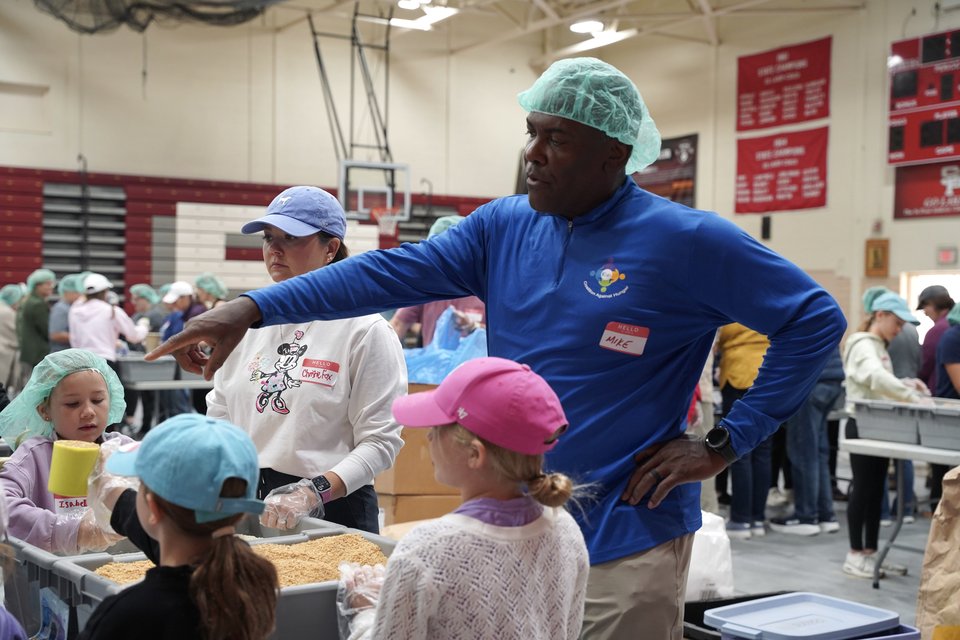Volunteer group has shipped more than 13,000 feminine hygiene products to poor communities in Africa, Cuba so far this year
ALLEN PARK — For the past 11 years, about a dozen women have met twice a month at St. Frances Cabrini Parish in Allen Park to patiently lend their time, talent and treasure to tackling period poverty in countries worldwide.
Working as a team in assembly-line fashion, the women patiently construct reusable sanitary pads that they bundle up to send off with nonprofits and mission groups, who bring them to girls in countries where access to feminine hygiene products can make all the difference in their futures.
“You can’t just ship things like that over to these countries because (often) the government takes them and destroys them,” Nancy Trela, the head of the sewing circle at Cabrini, told Detroit Catholic. “(These governments) want to continue to minimize the value of women, so they have a luxury tax on things like feminine hygiene products, which really makes it difficult for families in poor areas to be able to afford feminine hygiene products.”
As a result, many girls are forced to endure unsanitary conditions and solutions as they continue to attend school.
Trela started the project in 2014 after learning that nursing students at Wayne State University in Detroit were bringing reusable sanitary pads with them to distribute to girls during trips to remote African villages. Trela decided to bring the project to her parish community and partnered with the nonprofit Too Little Children, which runs “The Pad Project.”
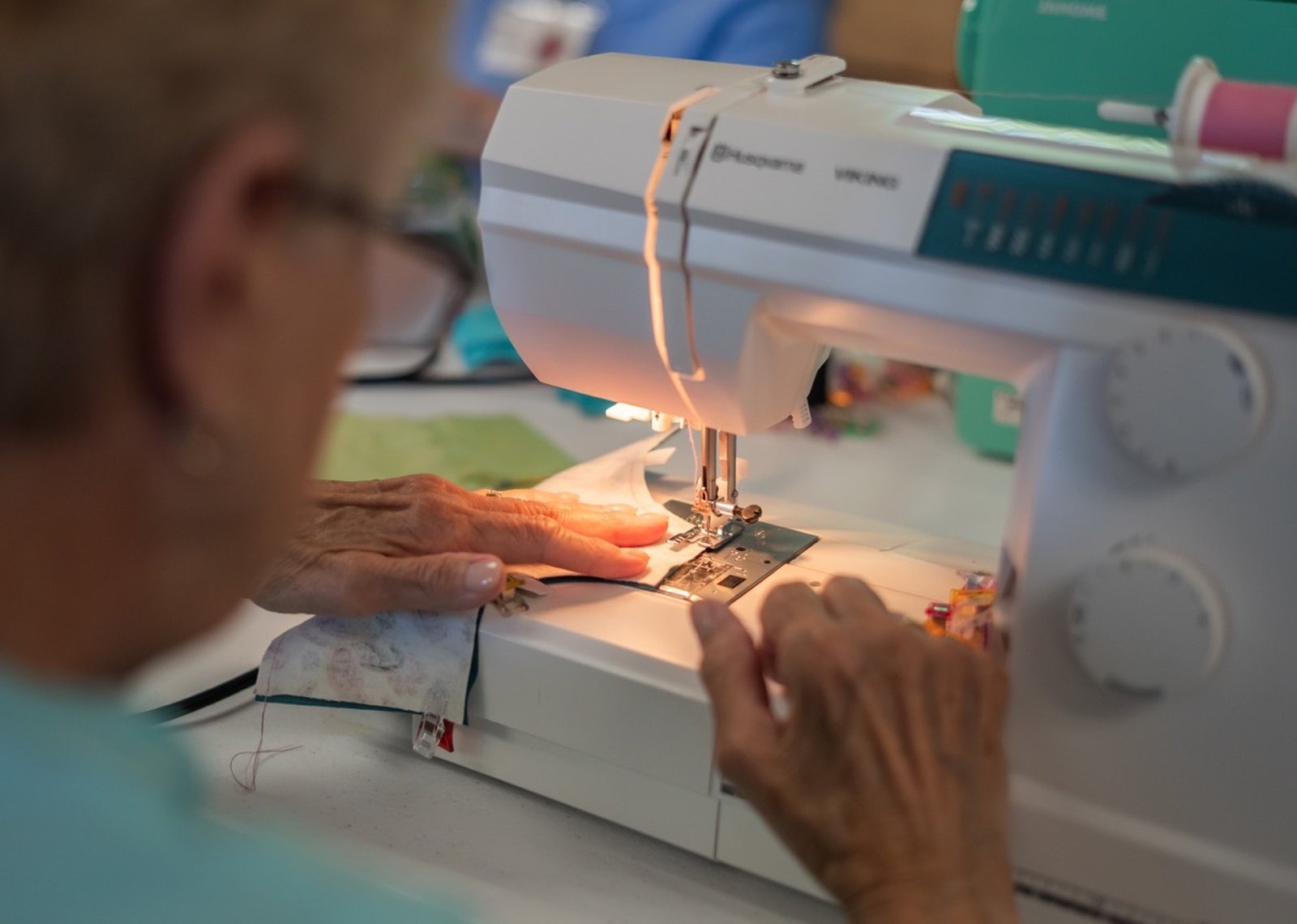
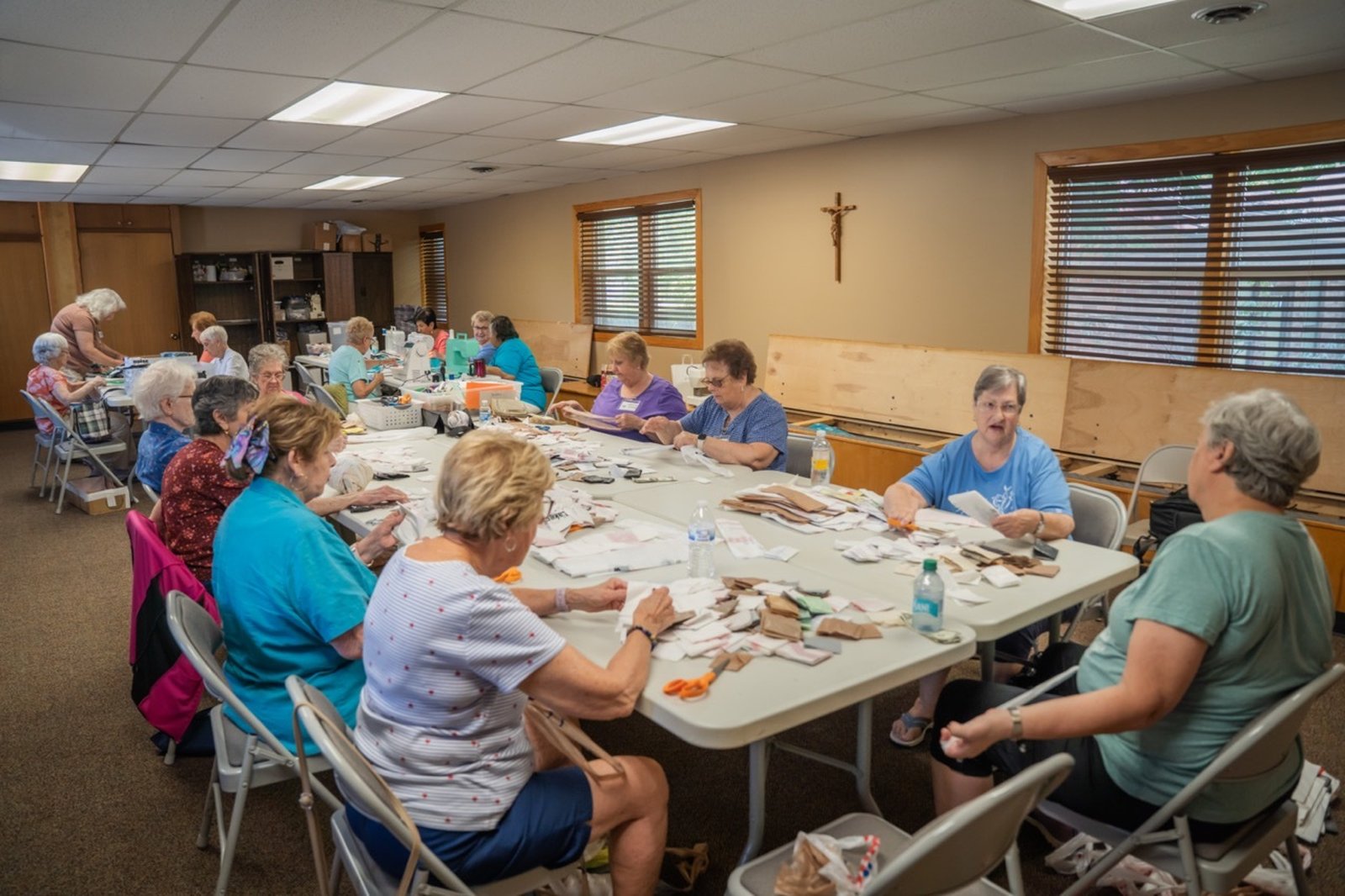
Too Little Children provides the pattern and instructions for making the sanitary pads and serves as the emissary who connects groups such as the Cabrini sewing circle with nonprofits and other groups who can deliver the pads wherever they're needed.
Over the years, Trela’s group has made and shipped tens of thousands of sanitary pads to places like Kenya, Zimbabwe, Ukraine, Sierra Leone, Cuba and more. In 2025 alone, the group has made and shipped more than 13,000 products.
The construction of the sanitary pads requires patience, as cutting needs to be precise and several fabrics are used to guarantee the pads' longevity, Trela said.
“It's a poly laminated fabric that is used to make reusable diapers because of the waterproof fabric,” Trela explained, adding each product is made using flannel with elastic, and includes a fleece insert that is re-washable. “A lot of them don’t have electric washers and dryers, so everything has to be reusable.”
Each girl gets what Trela calls two “base units” and four inserts. The groups that deliver the sanitary pads teach the girls how to use them.
In addition to the sanitary pad project, women in the group also work on other projects, such as making plastic mats and sleeping bags, which they distribute to local groups that served unhoused individuals.
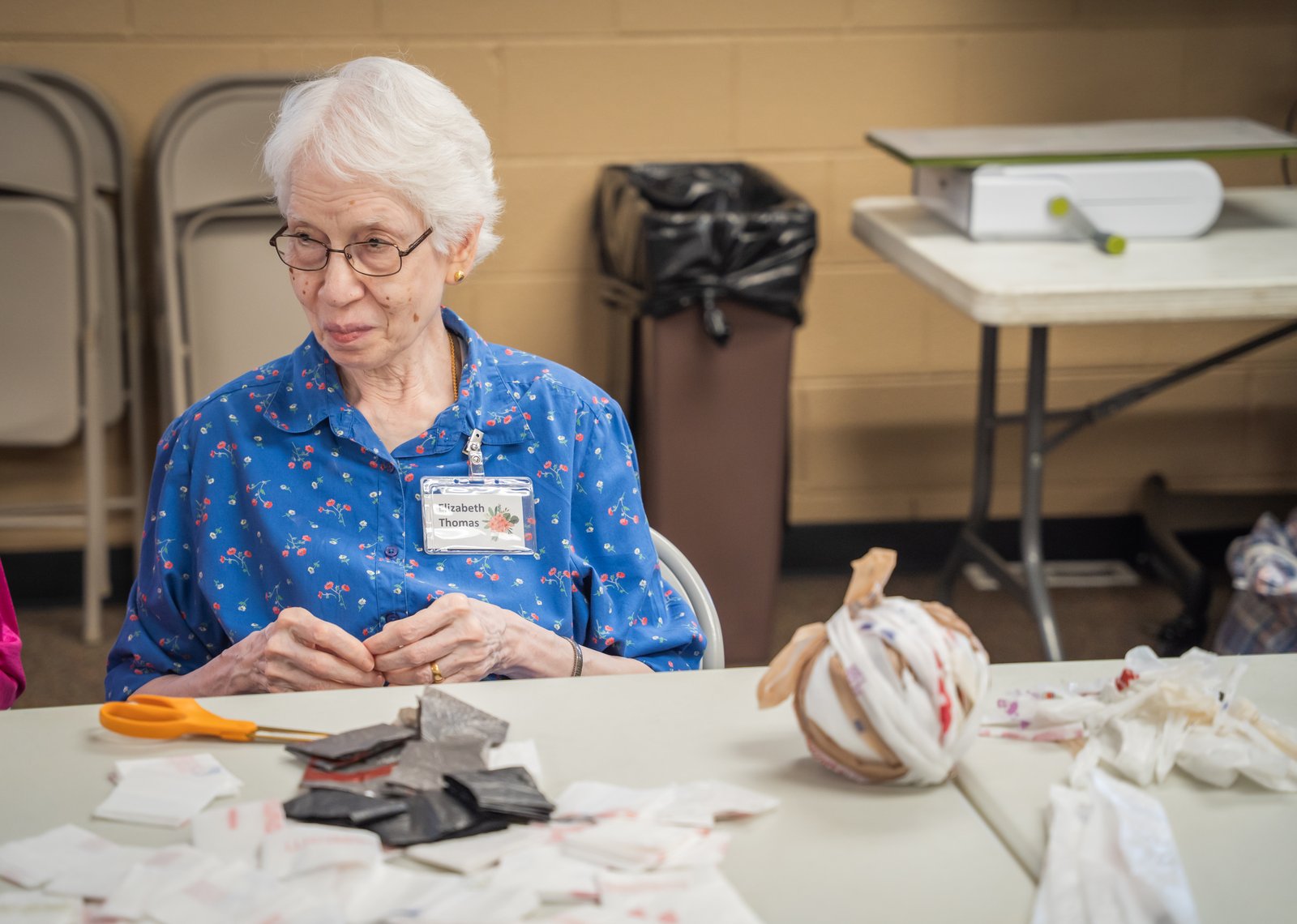
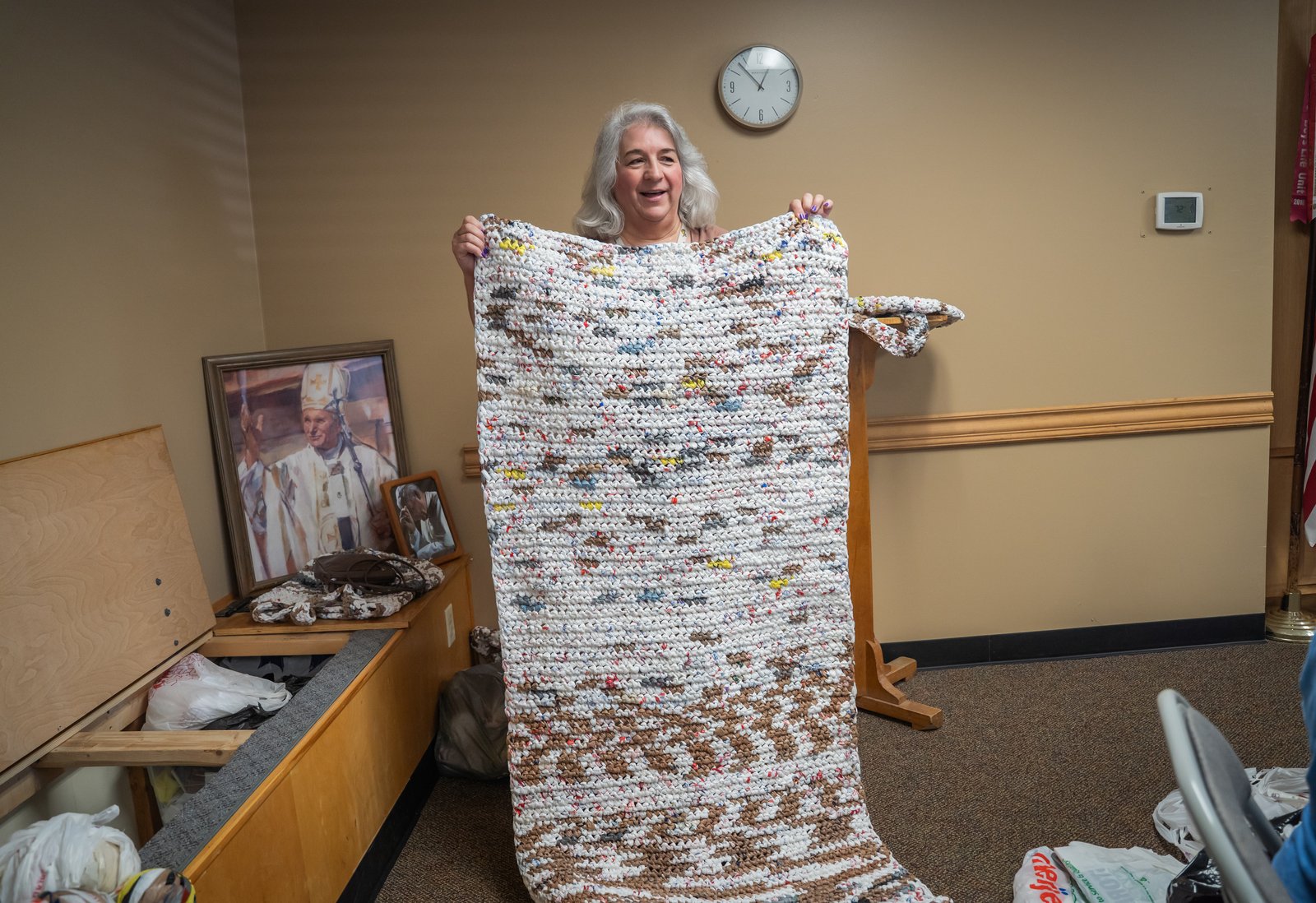
“The ladies take these plastic grocery bags, and we cut them. We slip knot pieces of them together to make what we call ‘plarn’ — plastic yarn,” Trela said. “We use the plastic yarn to crochet sleeping mats or duffel bags for homeless people, and both are distributed locally.”
Through the sewing circle, the women have found fellowship with one another and feel a kinship to the girls for whom they are making the hygiene products, Trela said.
“All of us who participate in this ministry realize the need and the benefit to these young women who are so suppressed, they don’t have things that we take for granted,” Trela said. “These young girls don’t have access to tampons or sanitary products, and it warms everybody who helps to know that we are giving freely.
“If we ship out 500 sanitary pads, I can look to the women who participate and help me with this ministry and say, ‘Look, we just touched 500 lives, at least,’" she added. "We directly impact those individual girls, not to mention how that might help their family and help their villages move forward.”
Copy Permalink
Christian service



